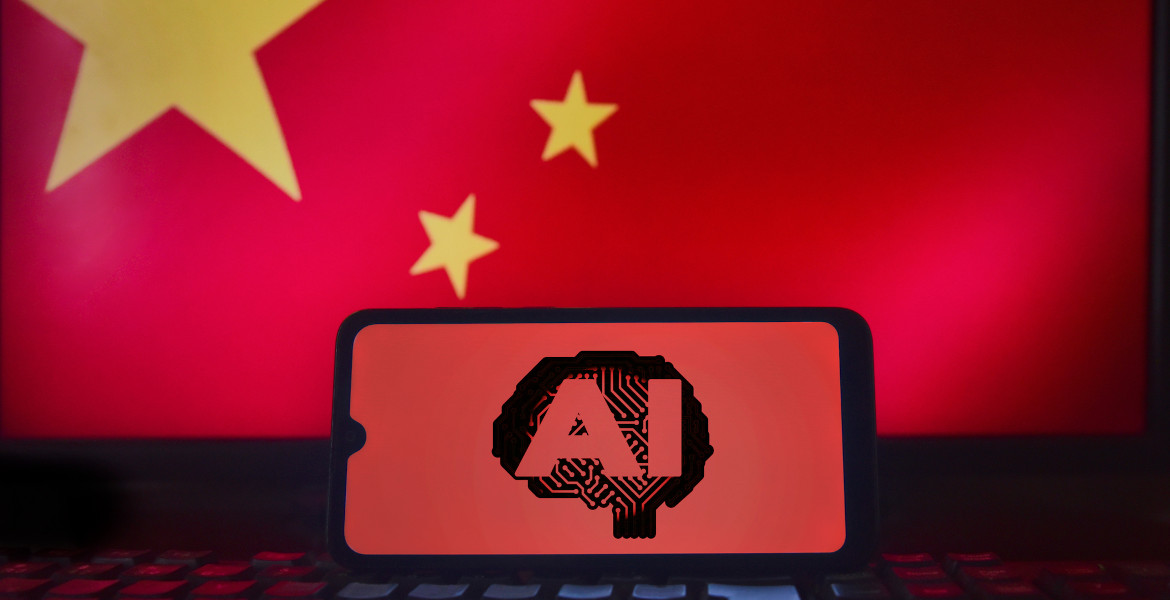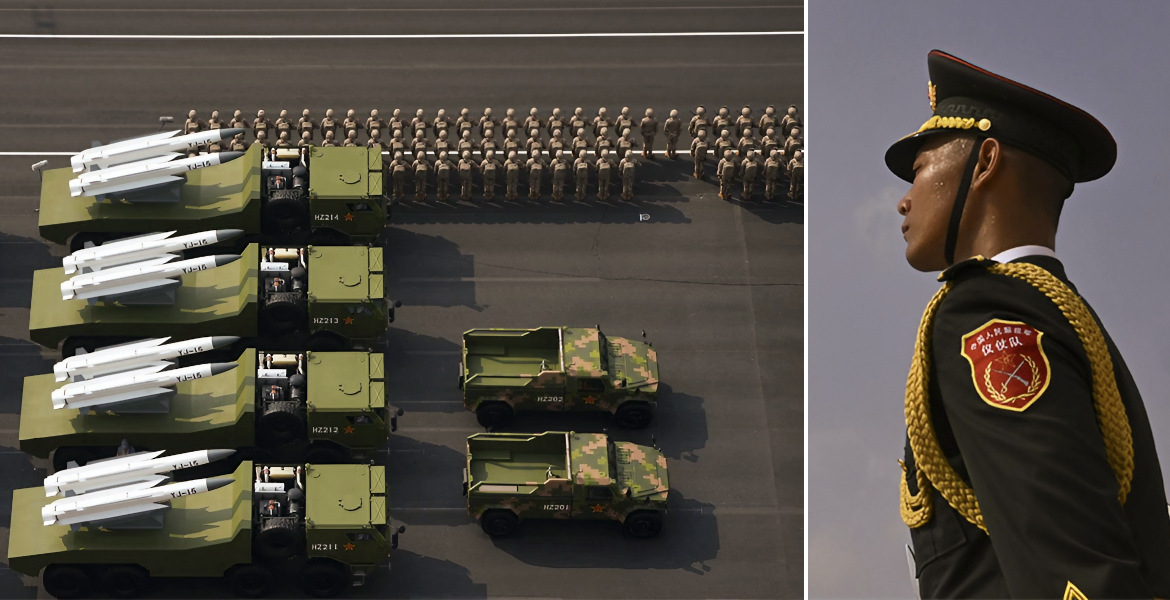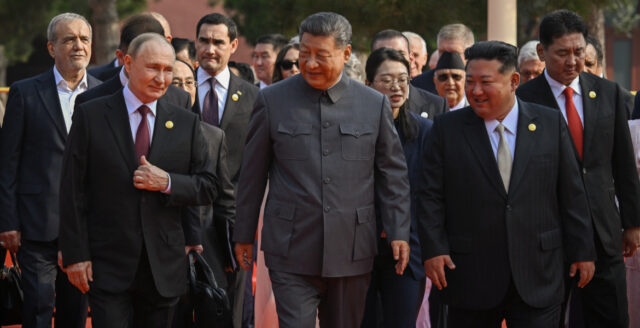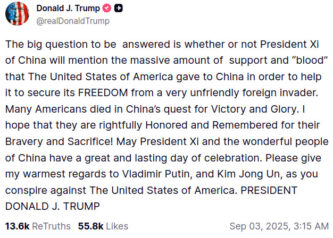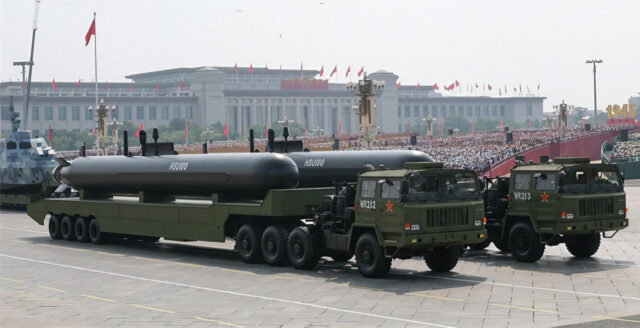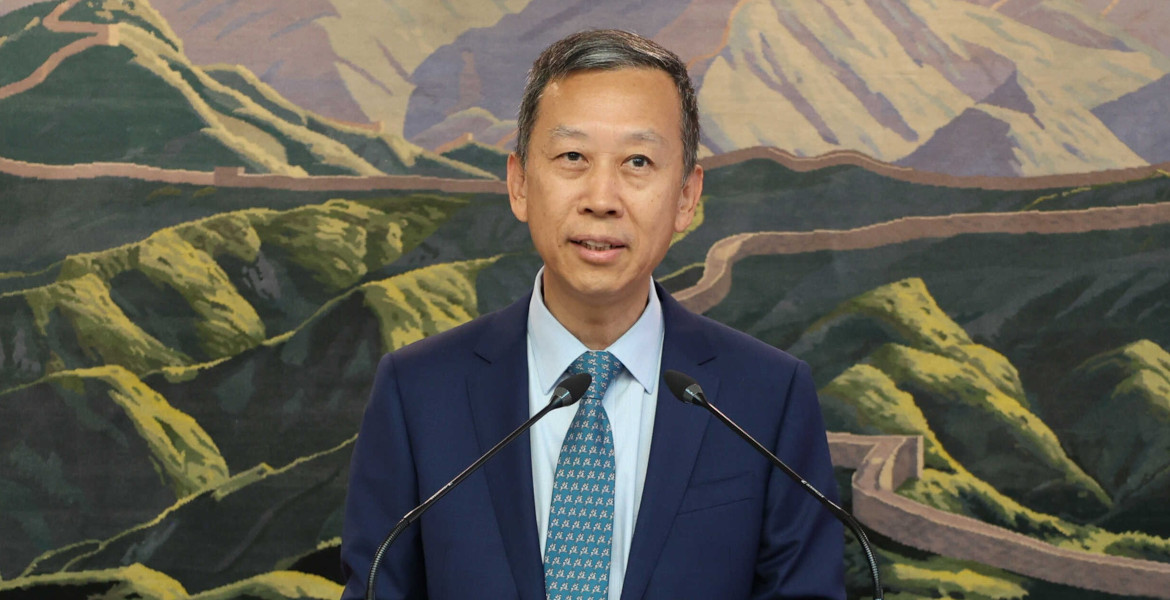Two sentences will stay for a long time in mind from President Xi Jinping’s keynote speech at the Third Belt and Road Forum in Beijing in October 2023, which I had the great fortune of attending:
– We have learned that humankind is a community with a shared future. China can only do well when the world is doing well. When China does well, the world will get even better.
– Important guiding principles for high-quality Belt and Road cooperation have been laid down, which include the principle of ‘planning together, building together, and benefiting together’.
A few months earlier President Xi, in his speech at the 15th BRICS Summit in Johannesburg, South Africa, cited an African proverb which states:
– If you want to go fast, go alone; if you want to go far, go together.
What these quotes signify for me is a reflection of a deep Chinese philosophical tradition which we see now manifesting itself in the visions and actions of China to improve the global governance system that seems to have lost its way since it was once ratified in the UN Charter in San Francisco in 1945. It has lost its way in the fog of series of wars, economic and social crises, and misguided geopolitical theories thriving in the West since the end of the Cold War in 1990, such as the “End of history”, “Clash of civilizations”, and “Project for an American Century”.
Humankind is a community with a shared future.
– President Xi Jinping
Recently, in a presentation I gave at a panel discussion of the Tongzhou Global Development Forum in Beijing, I made reference to the China-brokered Iran-Saudi Arabia normalization of relations in March this year in the context of my discussion about the interconnectivity among the Belt and Road Initiative (BRI), Global Development Initiative (GDI), Global Security Initiative (GSI), and Global Civilization Initiative (GCI). A Chinese Peoples’ Liberation Army officer participating in the discussion exclaimed:
– You know, people are waiting for the details of the secret negotiations between China, Iran, and Saudi Arabia to be released. There are no such things. There is only one open secret which is that China is a trustworthy partner who have made the ‘golden 30 years’ of peace in East Asia possible.
I was reminded that China’s amazing development was made peacefully, and that China has become a major power in the world without shooting a single bullet against any other nation.

Development, security, and civilization
My understanding of the symbiosis among the three notions of development, security, and advancement of civilization became more enriched this year after attending the Third Belt and Road Forum which coincided with the culmination of the horrific events in Palestine. The world is facing great challenges but at the same time great opportunities. The potential for a more just and beneficial system of global governance exists despite these challenges.
Ten years after the launching of the Belt and Road Initiative (BRI), which in my view is the greatest global development endeavour, the world stands at a crossroads. In one direction there is geopolitical competition, zero-sum games, wars, and instability. In the other direction, there is win-win cooperation, peace, and equitable and shared economic development. 152 nations have joined the BRI until now, a global majority. Those who try to isolate and stand outside the BRI, are finding themselves an isolated minority standing in a small yard with a very high fence, or as the Chinese express it, like a frog in a well. What the BRI has achieved in the first 10 years is the creation of an inclusive platform of multilateral cooperation transcending political, social, and cultural differences.

Besides the BRI, there is also the emergence of the BRICS (Brazil, Russia, India, China, and South Africa), the BRICS Plus (Iran, Saudi Arabia, the United Arab Emirates, Egypt, Ethiopia, and Argentina), and the Shanghai Cooperation Organisation (SCO). In all these, China holds a prominent position and contributes to their vitality and growth. But humanity cannot stand in a divided world. There is need to establish a universal understanding of the three notions to bring closer the nations of East with West, North with South.
Development
There is need to redefine what development is, including the notion of “sustainable development”. I am convinced that the Chinese notion of sustainable development and the Western notion diverge on core concepts. The Chinese notion is “sustained development” using modernization and industrialization, advancement of technology, and common prosperity for all nations. The Western notion is, unfortunately, attached to the false premise of “limited natural resources”, which is the root cause of the zero-sum game thinking. This concept argues that there isn’t enough for everyone. Accordingly, if China grows, if Asia grows, if Africa grows, and if Ibero-America grows, what will happen to the West and the limited resources they need for themselves? This is a very dangerous outlook that needs to be changed. There are no limited resources. There is only limited knowledge. As president Xi put it, “instead of fighting over a small pie, lets bake a bigger pie or many pies”. Harmony between nations and the zero-sum game cannot co-exist in the same world anymore.

The GDI (Global Development Initiative) calls for “balanced, coordinated and inclusive growth, promoting global development, and staying committed to development as a priority”. By development President Xi meant modernization and industrialization for all, not the few. This was re-emphasized again in the BRICS Summit in Johannesburg this year, when President Xi said:
Development is an inalienable right of all countries, not a privilege reserved for a few.
– President Xi Jinping
Security
We all realize that there could be no proper development without security. But it is not the egg or the hen. Both must advance together in a symbiosis. The GSI presented in April 2022, after the outbreak of the Ukraine war, outlined a new understanding of “security” of all nations, not what some superpowers believe is their own “national security interests”. The so-called “rules-based order” should be scrapped, and the UN Charter should be brough back from the dusty shelf where it has been placed since at least 1991. The sovereignty, independence, and non-interference in internal affairs of all nations whether big or small should be respected and their security interests taken into consideration.
But security and development are indivisible twins, according to the GSI. Without economic development there could be no sustainable peace and security. The efforts to “impose” security only through the power of arms, as the U.S. and NATO have done in Afghanistan, Iraq, Libya, Syria, Somalia and now in Palestine, not only failed miserably but even worsened the security situation in the world. One of the reasons why the Israeli-Palestinian Oslo Accords failed was that economic development of the Palestinian people and its neighbours was not taken seriously. That’s why the Chinese proposal to resolve the latest Israel-Palestine conflict calls for economic development to be the most important issue besides the establishment of a Palestinian state in a two-state solution.
The sovereignty, independence, and non-interference in internal affairs of all nations whether big or small should be respected and their security interests taken into consideration.
One of the best validations of the GSI was the China-brokered normalization of relations between Saudi Arabia and Iran. However, this “security” achievement was preceded by an unprecedented upgrading of economic cooperation between China and the Arab countries on the one hand and China and Iran in 2022. I must also add here the example of the Chinese policy of eliminating the threat of terrorism and extremism in Xinjiang, by using economic and social development as an instrument, not only security measures. This should become the model of dealing with security challenges anywhere in Eurasia and Africa.
Civilization
The GCI (Global Civilization Initiative), which was launched by President Xi in March 2023, is a unique proposal for establishing the goals of global governance and relations among nations based on a “dialogue of cultures”. The GCI raised the bar of political dialogue to a completely new level to address the means through which the achievement of peaceful co-existence among nations of the world, who are so diverse in culture, history, religion, lifestyle, and political and social systems, could be reached. The GCI, as expressed by President Xi is “a choice between polarization or common prosperity; between pure materialistic pursuit or coordinated material and spiritual advancement; between draining the pond to catch the fish or creating harmony between man and nature; between zero-sum game or win-win cooperation”. Through the GCI, the notion of “a community of shared future for humanity” took a concrete meaning.
The ancient Silk Road which the BRI is an image of was in a sense a dialogue of civilizations extending over many centuries. It was a vehicle for scientific, technological, and cultural exchanges, and a means to bring new tools to the peoples along the routes between China and Europe to improve their productivity, their standards of living, culture, and creativity. That in turn enabled them to use their specific local culture and creativity to invent new knowledge and tools to give back to the other societies along the same route. This is the “win-win” concept in its most scientific and moral shape.

My research in what happened in the Islamic Renaissance era (8th to 14th centuries) gave me a clearcut account of this process of inter-civilizational communication. Specifically, using the Chinese technology of producing paper on an industrial scale from cellulose fibres is one of the brightest examples of this process of cultural transformation through exchanges. In Persia, Baghdad, Damascus, Cairo, and Fez, there was a flourishing of scientific and philosophical activity. But without paper, this knowledge would not have proliferated so fast over such an incredibly vast part of the landmass of Earth. Today, we have the opportunity to recreate and benefit from such a dialogue of civilizations.
Conclusion: Sharing is caring
Humanity is challenged today to define the basis for co-existence among nations on our planet, because that is not so well-defined. Together, the BRI, the GDI, the GSI, and the GCI constitute a suitable multi-dimensional and multi-layered vision for global governance. They deserve thorough studies and discussions by all concerned individuals and groups to find a transparent answer to the challenges the world is facing today. The idea of creating a multilateral world, as pursued by China and the Global South, is not an attempt to reinventing the wheel of global governance (which is based on the UN Charter), but to enrich it and make it adaptable to the current conditions.
The question of harmony within diversity is a major part of this attempt. In the usual Chinese poetic wisdom, the Chinese Ambassador to Sweden, Mr. Cui Aimin gave a speech to a webinar our Belt and Road Institute in Sweden organised this year, in which he explained the nature and goals of the GCI. He said:
– Respecting the diversity of civilizations is a prerequisite for exchanges and mutual learning among them. The sun has seven colors, and the world is colorful. There are more than seven billion people and various religions in the world.
He emphasized that the GCI advocates seeking wisdom and nutrition from different civilizations, learning from each other’s strengths, and making progress together.
– It emphasizes fully drawing on the rich philosophies, profound humanistic spirit and noble moral concepts in human civilization. It supports working together to solve major issues concerning the future of the world and the future of mankind, and letting exchanges and mutual learning among civilizations become the driving force for the progress of human society, Mr. Aimin added.
Respecting the diversity of civilizations is a prerequisite for exchanges and mutual learning among them.
– Mr. Cui Aimin, Chinese Ambassador to Sweden
In economics, knowledge is considered as the only non-depletable substance. The more we consume of it, the bigger it grows. In the same manner, love grows bigger within us the more we give of it to others. When I was in the centre of Guangzhou in May this year, I examined a public electric bicycle sharing station. A lady approached me and explained how the process works and used her Wechat app to demonstrate for me how it worked. She said with a big friendly smile on her face before rode away on the shared bicycle: “You know, sharing is caring!” This simple expression encapsulates for me the manner with which the otherwise unfathomable complexity of the world situation can be resolved.
Hussein Askary,
Vice-Chairman of the Belt and Road Institute in Sweden
Hussein Askary is an economic and strategic analyst specialized in the Belt and Road Initiative. Has a record of studies and co-authored books on the New Silk Road since 1996. He has spoken in conferences in countries in Europe, Asia, and Africa on “physical economics” and the impact of infrastructure development on productivity of societies. He has been the West Asia Coordinator for the International Schiller Institute since 2001.


